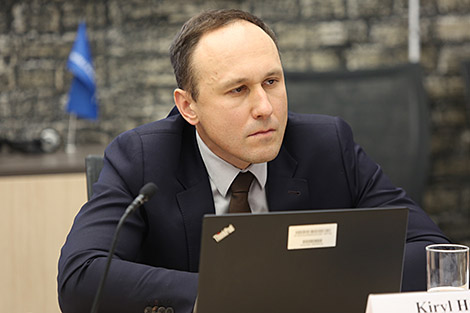Business news
Belarus encouraged to take structural measures to reduce low GDP growth period

MINSK, 28 November (BelTA) – Belarus may reduce the low GDP growth period by taking structural measures, BelTA learned from the World Bank economist Kirill Gaiduk during the presentation of a regular World Bank economic review of Belarus on 28 November.
The economist said: “The period of low growth Belarus risks entering can be reduced by implementing measures of structural nature in 2020-2021. We’ve repeatedly mentioned it – the restructuring of the state sector, which will require stronger social security. It is also necessary to increase the effectiveness of the financial system.”
The World Bank has revised its projections of the Belarusian economy growth downward amid the expected deterioration in external conditions, limited opportunities to stimulate demand, and uncertainty about Belarusian-Russian negotiations on further economic integration.
In 2019 the Belarusian economy growth rate slowed down due to falling export and difficulties of the structural nature. The World Bank expects Belarus’ GDP growth to be 1% in 2019, 0.9% in 2020, and 0.5% in 2021.
 The World Bank’s current projections rely on the assumption that Belarus will not get a compensation for the tax maneuver in the Russian oil industry in 2020-2021. “In mid-2019 the bank expected half of the losses to be compensated. Belarus is not going to lose much in the first few years, nevertheless, the lack of the compensation will affect the state budget anyway since revenues from these export customs duties will no longer be available. We don’t know whether there will be compensations and how much. We assume that there will be no compensation in 2020-2021,” Kirill Gaiduk explained.
The World Bank’s current projections rely on the assumption that Belarus will not get a compensation for the tax maneuver in the Russian oil industry in 2020-2021. “In mid-2019 the bank expected half of the losses to be compensated. Belarus is not going to lose much in the first few years, nevertheless, the lack of the compensation will affect the state budget anyway since revenues from these export customs duties will no longer be available. We don’t know whether there will be compensations and how much. We assume that there will be no compensation in 2020-2021,” Kirill Gaiduk explained.
“So the forecast takes into account uncertainty about results of the negotiations on tighter Belarus-Russia integration. We don’t know where the negotiations may lead. This is why the forecast has been made bearing in mind the fact that there is no compensation for now and Belarus will use new ways to borrow money on foreign markets,” the World Bank economist concluded.
Belarus became a World Bank member in 1992. Since then the country has borrowed $1.9 billion from the bank. Apart from that, $31 million has been made available as grants for the sake of financing various programs. At present the World Bank’s investment portfolio in Belarus includes nine projects to the tune of $942.7 million.







 print version
print version make home page
make home page add to bookmarks
add to bookmarks

